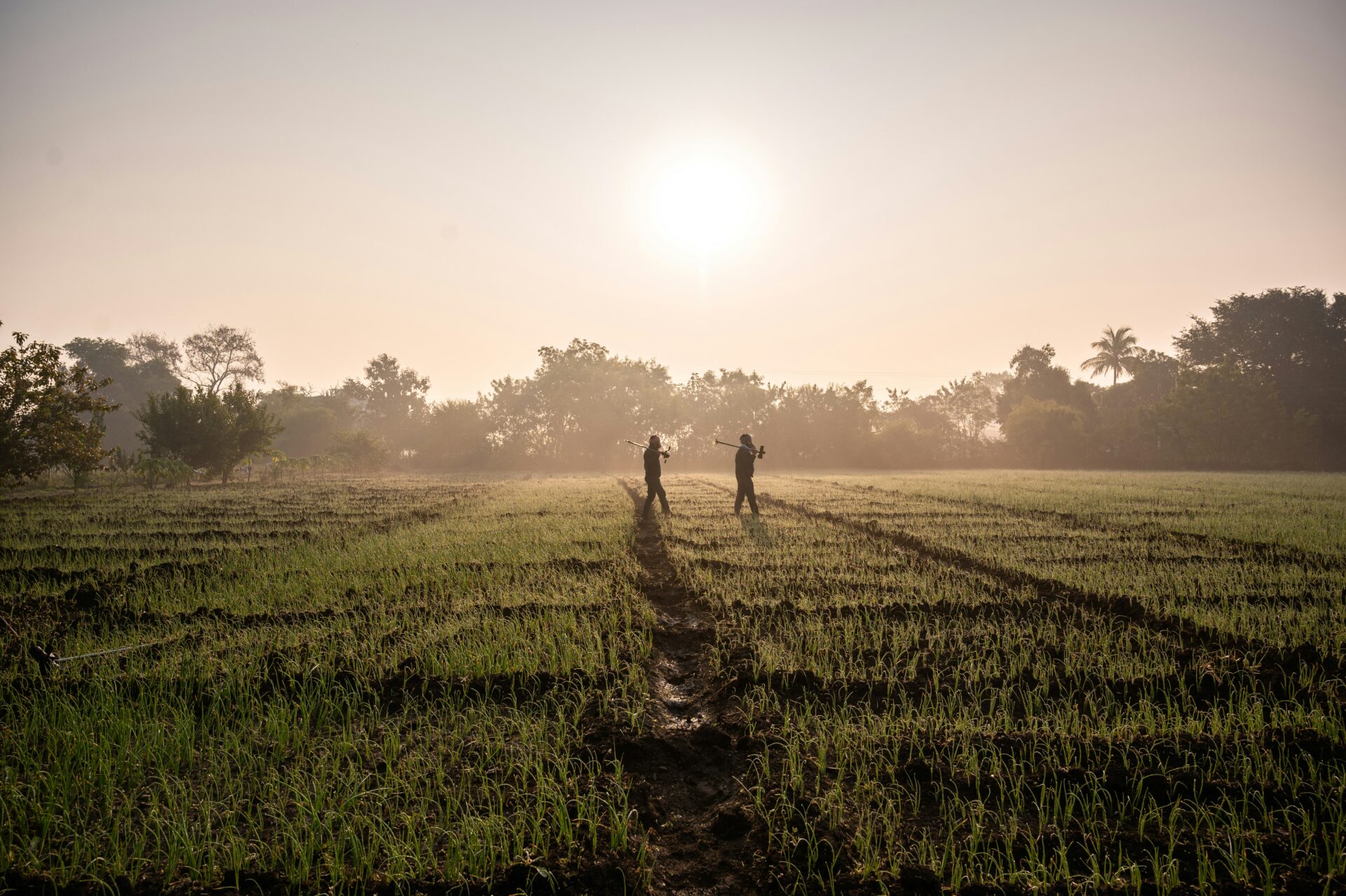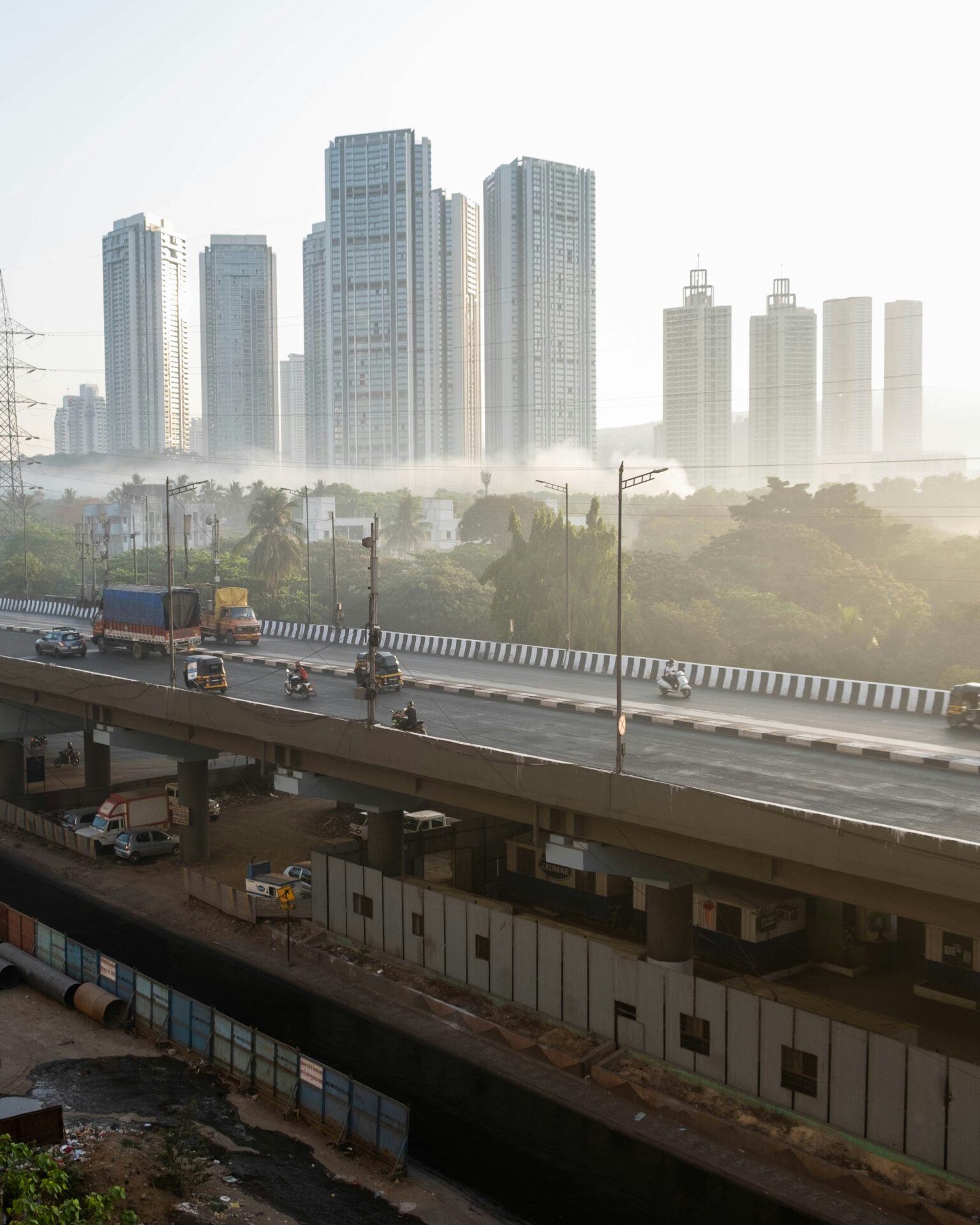The impacts of climate change on work environment and labor productivity due to climate change, especially rising temperatures, are likely to be significant in India, especially for vulnerable communities. The United Nations International Labor Organization’s recent reports suggest over 70% of the global workforce is subjected to extreme heat and humidity at work. This not only affects labor productivity across various sectors but also necessitates innovative technical, behavioral, and financial interventions to protect workers.
This track brings together a diverse group of stakeholders including representatives from the private sector, workers, labor organizations, and public health experts. Together, they will contribute evidence-based recommendations to policymakers both in India and internationally. Innovations like parametric heat insurance and anticipatory financing for disasters, developed in collaboration with India’s worker organizations and international institutions, will be discussed in detail.
Building on ongoing research at the Mittal Institute and Salata Institute to quantify the impact of heat on workers’ health and economic wellbeing, this track is part of the largest study of its kind. The findings are expected to offer crucial data from the Global South on the effects of high temperatures on human health, influencing global standards for health protections, building codes, and work environment.
The discussions will explore challenges in quantifying heat exposure and its effects on productivity and examine the impact of rising heat in urban settings at both micro and macro levels. The group will also delve into policy gaps affecting workers, with a focus on innovations like incorporating gender responsive approaches in work environment, initiatives for capacity building, safety nets for climate-vulnerable populations and policy interventions to enhance healthcare access and income stability amid climate shocks.
Further, the event will discuss India’s monumental Heat Action Plans and their integration with State Disaster Management Authorities, highlighting their role in economic recovery and work continuity The role of private sector and the Corporate Social Responsibility initiatives in improving work environment will also be weighed in. Lastly, the outcomes expected from this group’s work are set to influence global policy discussions at upcoming conventions like the ILO, COP, and UNGA, focusing on setting practical, localized heat index thresholds for various trades and occupations and validating adaptation strategies.
Explore sessions below.
ADAPTATIONS AT WORK
The objectives of the first session are to: (1) share research on the impact on worker productivity of exposure to extreme heat; (2) explore the efficacy of adaptations that have been implemented in India and globally; and (3) brainstorm innovative strategies for providing additional protections for workers in different sectors, including the most vulnerable workers.
Building on ongoing research by our team at the Mittal Institute to quantify the impact of heat on workers’ health and wages, this session is part of the largest study of its kind. The findings are expected to offer crucial data from the Global South on the effects of high temperatures on human health, influencing global standards for health protections, building codes, and worker safety.
The discussions will explore challenges in quantifying heat exposure and its effects on productivity and examine the impact of rising heat in urban settings at both micro and macro levels. The group will also delve into legal and policy gaps affecting workers.Further, the session will discuss India’s Heat Action Plans, highlighting their role in work continuity. The session also will discuss the U.S. Occupational Safety and Health Administration’s proposed Heat Standard.
Prompt Facilitators:
- Jim Frederick, Former Deputy Asst. Secretary for Occupational Safety and Health, US DOL
- Jyotiben Macwan (General Secretary, Self-Employed Women’s Association (SEWA))
- Rajesh D. Nayak (Former Assistant Secretary for Policy, U.S. Department of Labor)
- Shaik Salauddin (National General Secretary, Indian Federation of App-based Transport Workers (IFAT))
Session Moderator: Sharon Block (Professor of Practice and Executive Director, Center for Labor and a Just Economy, Harvard Law School)
Respondents:
- David Michaels (Professor of Environmental and Occupational Health and Epidemiology, Milken Institute School of Public Health, George Washington University)
- Srinivasan Iyer (Senior Fellow, New Political Economy Initiative, IIT Bombay)
PROTECTING INCOME
Even with strong regulatory standards in place and robust commitments from the private sector, recent extreme heat waves have made clear that we will increasingly face periods of time when work cannot be safely undertaken. Such necessary cessations of work have a devastating impact on the livelihoods of both workers, particularly low-wage and vulnerable workers, and businesses. Accordingly, the challenge of meeting the threats to workers and the economy are not only physical but also economic.
This session will address the kinds of economic and other policy supports that need to be adopted to address these economic threats. The session will focus on innovations like incorporating gender responsive approaches in work environment, initiatives for capacity building, safety nets for climate-vulnerable populations and policy interventions to enhance healthcare access and income stability amid climate shocks.
Innovations like parametric heat insurance and anticipatory financing for disasters, developed in collaboration with India’s worker organizations and international institutions, will be discussed in detail. The session also will explore the role of collective bargaining in adoption of economic and social supports that meet the needs of business and labor.
Prompt Facilitators:
- Rebecca Reindel (Director of Occupational Safety and Health, AFL-CIO)
- Mary McBryde (Chief Program Officer, Climate Resilience for All)
- Mansi Shah (Representative, Self-Employed Women’s Association (SEWA))
- Aditi Surie (Senior Researcher, Indian Institute for Human Settlements)
- Rohit Sharma (Vice President, Operations Strategy, Swiggy)
Session Moderator:
Srinivasan Iyer (Senior Fellow, New Political Economy Initiative, IIT Bombay)
Respondents
- Suma Pathy (Country Lead—India, Population Services International)
- Anshul Khurana (Co-Founder, Entitled Solutions)
STRATEGIES FOR GLOBAL INTERVENTION
While policy makers must play a significant role in addressing the needed adaptations for workers subjected to occupational exposure to extreme heat, labor, business and civil society also must play a role. Global convenings on the climate crisis, labor movement, corporate social responsibility and global cooperation provide opportunities to raise the visibility of the needs of workers as temperatures rise. The outcomes expected from this group’s work are set to influence global policy discussions at upcoming conventions like the ILO, COP, and UNGA, focusing on setting practical, localized heat index thresholds for various trades and occupations and validating adaptation strategies.
Prompt Facilitators:
- Sharon Block (Professor of Practice and Executive Director, Center for Labor and a Just Economy, Harvard Law School) on law
- Shalini Sinha (India Country Representative and Home-Based Workers Sector Specialist, Women in Informal Employment: Globalizing and Organizing (WIEGO)) on collectives
- David Michaels (Professor of Environmental and Occupational Health and Epidemiology, Milken Institute School of Public Health, George Washington University) on policy
- Dharmendra Kumar (President, Amazon India Workers Association)
- Ashley Ward (Director, Heat Policy Innovation Hub, Duke University)
Session Moderator:
- Cathy Feingold (Director, International Department, AFL-CIO; Deputy President, International Trade Union Confederation (ITUC))
Respondents:
- Rajesh D. Nayak (Former Assistant Secretary for Policy, U.S. Department of Labor)
- Manshi Shah



